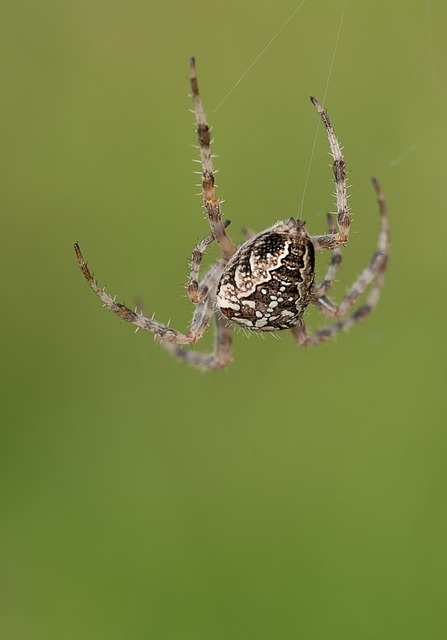This text offers comprehensive strategies for managing and preventing spider infestations in both residential and commercial settings. It emphasizes the importance of professional spider control services that utilize eco-friendly techniques, combining advanced technologies with a deep understanding of spider behavior for long-term protection. For homes, key tips include regular cleaning, clutter reduction, natural repellents, and vacuum usage. Commercial properties are advised to seek professional services due to their larger scale, focusing on sealing entry points, proper ventilation, strategic lighting, and regular inspections by pest control experts. By implementing these diverse spider prevention tips, individuals and businesses can effectively spider-proof their spaces.
Tired of sharing your space with unwelcome spider visitors? Understanding their behavior is the first step to effective spider infestation prevention. This guide arms you with expert advice on identifying attractants and entry points, offering a comprehensive toolkit for both residential and commercial spider control. From professional strategies to eco-friendly solutions, learn how to spider-proof your spaces and reclaim your environment.
Understanding Spider Behavior: Identifying Attractants and Entry Points
Professional Strategies for Effective Spider Infestation Prevention
Professional strategies for effective spider infestation prevention are essential for both residential and commercial spaces. Engaging the services of a reputable pest control company specializing in spider control is a proactive step. These professionals employ advanced techniques, such as identifying and sealing entry points, applying eco-friendly repellents, and using targeted treatments to eliminate existing spiders. Regular inspections and maintenance are key components of their strategies, ensuring that any new spiders are caught early, preventing widespread infestations.
When considering spider prevention tips, it’s crucial to focus on minimizing attractants. This includes maintaining cleanliness, regularly vacuuming, and promptly wiping up spills. Additionally, proper ventilation in attics and crawl spaces helps deter spiders. Spider-proofing your home involves sealing gaps around windows and doors, installing screens, and using physical barriers like diatomaceous earth or glue traps. Implementing these professional spider prevention solutions not only effectively controls the current population but also creates an inhospitable environment for future spider intruders.
Eco-Friendly Solutions to Create a Spider-Free Environment
Creating a spider-free environment is achievable with the right approach, especially when considering eco-friendly solutions that are both safe and effective. For residential or commercial spaces, preventing a spider infestation starts with understanding their behavior and preferences. Spiders are drawn to areas with ample hiding spots, such as dark corners, cluttered spaces, and cracks in walls or ceilings. Regular cleaning and decluttering significantly reduce these attractants. Opt for natural repellents like citrus oils, peppermint, or neem oil instead of harsh chemicals; these can be used in spray forms or diffused to create a less welcoming atmosphere for spiders without harming pets or humans.
Professional spider control services often recommend sealing entry points as a crucial spider prevention tip. This involves checking for and sealing cracks, gaps around doors, and windows with caulk or weatherstripping. Additionally, maintaining good outdoor hygiene, such as promptly removing leaf litter and trimming vegetation away from the building’s exterior, can deter spiders from setting up camp in your property. Remember that spider-proofing your home is an ongoing process; regular inspections and proactive measures will help keep these eight-legged invaders at bay.
Tips for Residential and Commercial Spider Control: A Comprehensive Guide to Spider-Proofing Your Spaces
Spider infestations can be a significant concern for both homeowners and business owners. Implementing effective spider control measures is crucial to maintaining a clean, safe, and pest-free environment. For residential areas, regular cleaning and inspection are key. Start by eliminating clutter, especially in corners and dark spaces where spiders tend to hide. Vacuum regularly, using the brush attachment to reach tight spots, and consider natural repellents like lavender or mint oils.
Commercial properties may require professional spider control services due to their larger size and complex structures. Eco-friendly solutions include sealing entry points, ensuring proper ventilation, and employing strategic lighting to discourage spiders from entering. Regular inspections by pest control experts can help identify potential issues early on. By combining these spider prevention tips, you can effectively manage and even prevent spider infestations, ensuring a comfortable and spider-free space for both residential and commercial settings.
By implementing a combination of professional strategies, eco-friendly solutions, and practical tips, you can effectively reduce spider attractants and prevent infestations in both residential and commercial spaces. Regular inspections, sealing entry points, maintaining cleanliness, and utilizing natural repellents are key components of successful spider infestation prevention. For severe cases, enlisting the help of professional spider control services ensures a thorough and safe resolution. With these comprehensive guidelines, you’re well-equipped to spider-proof your environments and create a pest-free haven.
